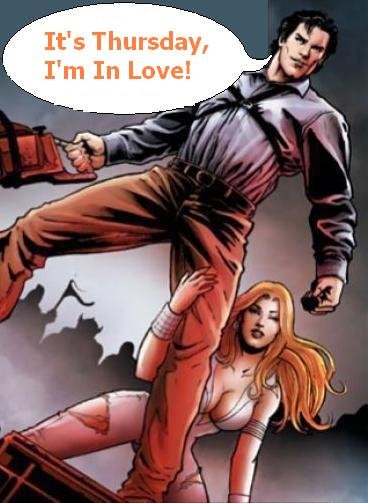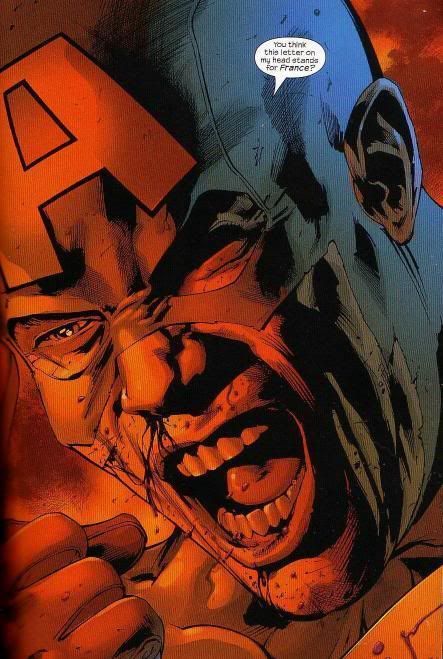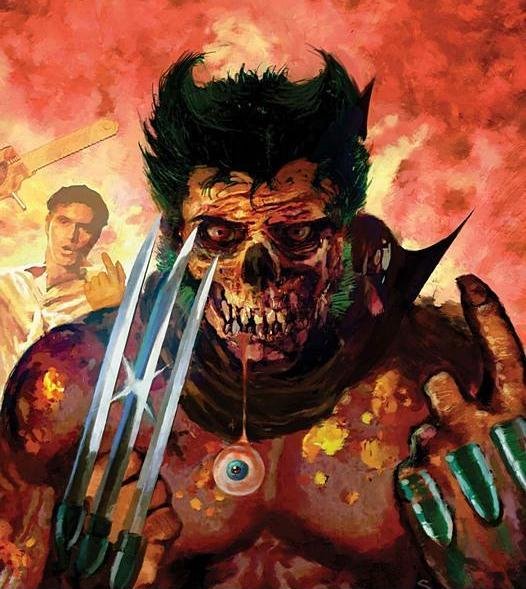SECRET STASH: FUN HOME
The hidden shame of a family and the pains of growing up with an overbearing father collide to make Alison Bechdel's stunning graphic novel the next Maus
By Kiel Phegley | Posted June 4, 2007 4:00 PM |
Writer/Artist: Alison Bechdel
Publisher: Houghton Mifflin
Website: http://www.dykestowatchoutfor.com/fun-home/
 REVIEWER OF THE MONTH
REVIEWER OF THE MONTHKIEL PHEGLEY (Staff Writer)
WHAT I READ: Genre comics with a focus on fun over angst (All Star Superman, Scott Pilgrim) and book-length series with a strong sense of history and imagination (Love & Rockets, anything by Seth).
WHY I DIG ‘FUN HOME’: The antithesis of every pretentious, boring autobiographical comic, Alison Bechdel’s honest memoir portrays real, fallible people rather than stereotypes. To top it all off, it’s an extremely smart, literate comic—and not in that “The Kingpin just quoted Shakespeare” way.
There’s something I have to get off my chest.
I scammed a free copy of Alison Bechdel’s Fun Home off of a book publicist at the New York Comic Con before I ever knew I’d review it in Wizard. But when the award-winning graphic novel memoir gets an affordable and accessible softcover treatment this June, you need to go out and buy it. Entirely revealing in its depiction of Bechdel’s life growing up with her family, the book holds a magnifying glass over key moments in her development (her first lesbian experience, her father’s sexual involvement with young men, etc.) to display an absolute depiction of one family struggling through its dysfunction.
 “I think what most people respond to in the book is the way I expose my family’s secrets,” says Bechdel, a 24-year veteran of the alternative comics scene who’s most known for her strip Dykes to Watch Out For. “I don’t think that’s quite lost its appeal yet, even in this age of gutspilling memoirs. I think the other thing is, I didn’t just spill my guts. I tried to sort them all out, to label and examine them. I think that provides a more satisfying reading experience in the end than just a pile of guts.”
“I think what most people respond to in the book is the way I expose my family’s secrets,” says Bechdel, a 24-year veteran of the alternative comics scene who’s most known for her strip Dykes to Watch Out For. “I don’t think that’s quite lost its appeal yet, even in this age of gutspilling memoirs. I think the other thing is, I didn’t just spill my guts. I tried to sort them all out, to label and examine them. I think that provides a more satisfying reading experience in the end than just a pile of guts.”The study of those family innards took Bechdel seven years to complete as she toiled over the details of her upbringing. Those details mostly focus on her relationship with her father Bruce, a well-read, closeted gay man who, in her opinion, committed suicide. From the museum-like detail her father applied to decorating both the Bechdel residence and their family-operated funeral home (aka Fun Home) to the stern manner in which he’d introduce his children to classic literature, the relationship between father and daughter was often a strained affair whose doors only opened wide after Bechdel’s adolescent discovery that she was a lesbian.
However, writing off Fun Home as another self-indulgent, diary-like autobiographical comic is a massive mistake. I’ve read countless, whiney, “my life was so rough” indies, and what makes Fun Home such a dominant, true-life comic is that Bechdel not only tells a complete story, she does so with an unabashed, well-thought style that will drag you into the highs and lows of experiences. There are panels in the book where Bruce trades his quiet decorating for an angry and physically abusive demeanor and where Alison lays out her own obsessive compulsive tendencies like uncontrollably drawing loops through words and ideas in her diary that make her anxious. But those parts never made me dislike the Bechdels. They made me sympathize with them in an effective, almost uncomfortable way. It’s like watching your role model cousin laugh and cry her way through a confession of what went on behind the closed doors of her home.
“I flailed around for a very long time,” explains Beschdel of her approach to a full-length book. “Suddenly having 200-plus pages of a graphic novel sprawling out before me was sort of like getting out of prison—it was scary, and I wanted my walls back. But as I plugged along, I discovered that this larger form had its own constraints and rules and strictures.”
Although, being the book nerd I am, the thing that brought Fun Home’s themes into clearest focus for me was the way the structure and story intersected with established literary classics from Bechdel’s past. Whether it’s her father’s romantic comparisons of his flawed marriage to the life of novelist F. Scott Fitzgerald or Bechdel’s own attempts to tackle the behemoth that is James Joyce’s Ulysses, the string of smart (and occasionally sarcastic) literary nods played important roles in the lives of the Bechdel family, serving as an engaging and fateful doorway into their personalities.
 “I started noticing individual literary parallels fairly early,” recalls Bechdel. “It took a long time of working with that material before I could see the larger patterns underlying it, and get some perspective on why I had this tendency to read my parents as fictional characters.”
“I started noticing individual literary parallels fairly early,” recalls Bechdel. “It took a long time of working with that material before I could see the larger patterns underlying it, and get some perspective on why I had this tendency to read my parents as fictional characters.”Readers nationwide must identify with the parents-as-fictional-characters ideal, too. Time named Fun Home “Book of the Year” and classrooms across the country have begun teaching the tome alongside graphic classics such as Maus and Persepolis.
“I visited a bunch of classes,” explains Bechdel of her interaction in the book’s academic crossover. “Sometimes students got a little hyperfocused on the personal aspects of the story. But I’m trying to find ways to turn my answers to those intimate questions back onto the writing, back to questions about the aesthetics of memoir and graphic narrative.”
Those aesthetics were lost on a library in Marshall, Mo., though, when it attempted a very public ban of the book from its shelves. Eventually, in mid-March of 2007, the ban was overturned. Still, the ban created more press around the book than had been there before and brought new family heartache as Fun Home became a critical sensation.
“Sharing the intimate details of my private life with thousands of anonymous strangers was nothing compared to showing this book to my mother and brothers,” admits Bechdel. “It’s been strange seeing this very intimate book get so much attention. Of course that’s a good thing, but there’s no way to really be prepared for it. I have all kinds of conflicting feelings, and so does my family. Though we haven’t really talked about it very much.”
THE LAST WORD In the end, Fun Home isn’t just important in the comics scene—it’s an important book, period. Merging the world of pop culture and high culture in a dizzying display of storytelling, the book cannot be passed up and should be passed on to everyone you know.



No comments:
Post a Comment